Management in Practice
What Sparks Social Change?
Social structures, attitudes, and laws can seem unchangeable—and then in the historical blink of an eye, a society is transformed. What prompts such change? Margaret Marshall, the judge who wrote a key decision in the development of same-sex marriage in the U.S., says it takes a lot more than any one court case.

Nineteen Ways to Boost Innovation in Your Company
Bureaucracy can stifle creativity. But organizations need timelines, rules, and hierarchies to direct and nurture productive innovation. Here are nineteen ideas for leveraging the creative capabilities in your workforce, as tried and tested by leaders in the field.
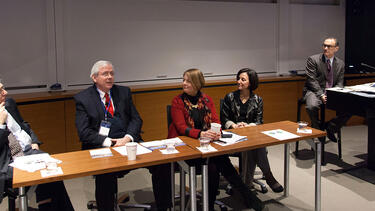
What Do Social Entrepreneurs Do?
Four Yale SOM graduates who have founded and run organizations—both for-profit and nonprofit—that aim to have large-scale social impact talked about their experiences in the fast-developing field of social enterprise.
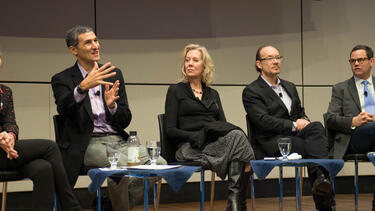
Can Finance Do Good?
The concluding discussion of the three-day Business + Society conference was titled “Finance in Society,” and dealt with both the tension and the possibility in that relationship.
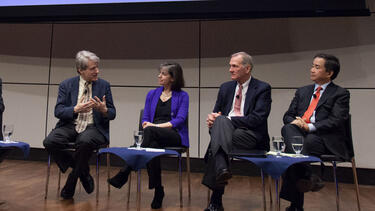
Can We Fix the Financial System?
Six highly influential policymakers surveyed the current state of the world’s major financial institutions and discussed how to prevent another crisis.
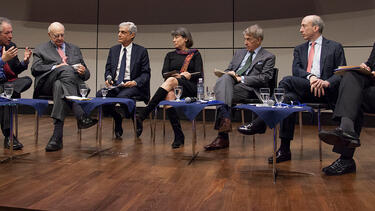
Are CEOs Brands?
If you hear the names “Steve Jobs,” “Jamie Dimon,” and “Warren Buffett,” you’ll probably think “Apple,” “JPMorgan Chase,” and “Berkshire Hathaway.” A CEO’s image can become almost inseparable from the company he or she leads.
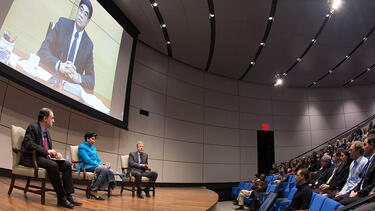
Can We Have Your Data, Please?
Top marketing executives discuss big data and how today’s companies are using all of the information they’re collecting about customers.
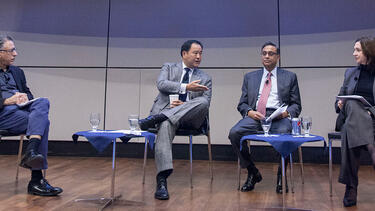
Can Teaching Tea Workers In India To Read Have a Larger Impact?
Mercy Corps’ literacy program in Assam, India, works because it is local—designed and taught by staff with an understanding of the culture there. As a global organization, Mercy Corps needs to balance investment in a deep understanding of local issues with the imperative to make a difference in as many lives as possible.

How Do Successful Firms Find the Right People?
Placing the right people in the right role lets companies innovate and grow. But there’s no surefire way of getting the perfect fit. Some companies are turning to big data to solve this problem; some go with the gut to find creativity and judgment. Beth Axelrod, eBay’s head of human resources, explains how the company goes about finding and retaining the talent it needs.

What Will Healthcare Look Like after the Affordable Care Act?
At the moment, the most visible parts of the Affordable Care Act are the newly launched—and glitchy—insurance exchanges, intended to extend coverage to millions of individuals. But healthcare reform also includes measures designed to slow the growth of healthcare spending and improve outcomes. In the coming years, the ACA will “transform how we deliver healthcare to individuals,” says Ezekiel Emanuel, a doctor, bioethicist, and advisor to the Obama administration.